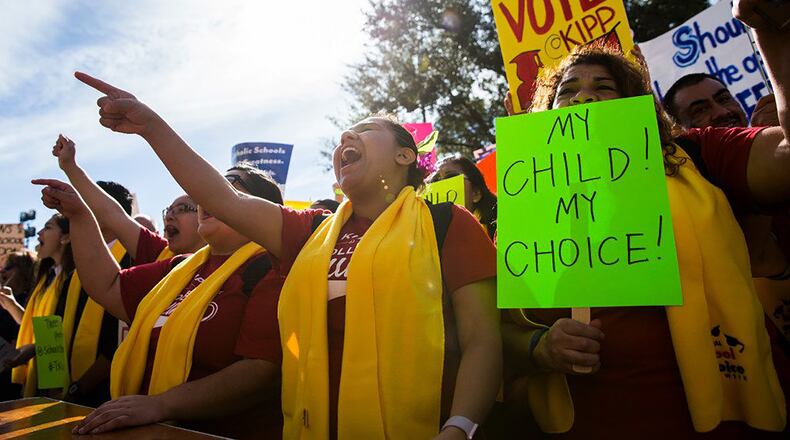Melissa Jackson of Alpharetta is president and co-founder of Freedom in Education. She launched the group in August after seeing the challenges facing her four children from what she felt were politically motivated agendas in public schools during COVID-19. She is the former Georgia president of No Left Turn in Education.
In this guest column, Jackson urges support of Senate Bill 233, which would create a statewide voucher program in Georgia.
By Melissa Jackson
What’ll ya have? A favorite question posed to Atlantans and tourists for decades at our beloved world-famous Varsity.
From hot dogs to doughnuts, Americans and Georgians alike embrace choices. Anyone who grew up in Atlanta can’t imagine being told they couldn’t have a chili dog sitting in the most iconic drive-thru in America.
Now Georgians are faced with a different kind of choice, one that could impact the future of our children and grandchildren, and possibly lift an entire community out of poverty. With the 2022 National Assessment of Educational Progress showing less than a third of Georgia’s fourth and eighth grade students scoring proficient or better in reading, increased choice could mean increased achievement. That is the goal of a proposed bill in the Georgia Legislature, Senate Bill 233.
Credit: Courtesy photo
Credit: Courtesy photo
Per pupil spending in the Atlanta Public Schools district averaged $21,765 in 2021-2022, according to the Governor’s Office of Student Achievement. In that same year, GOSA shows the statewide Georgia average was $12,106 per student. Yet, state scores show 56.5% of APS third graders were reading on grade level in 2022, compared with 66% of all Georgia third graders.
SB 233 would allow children attending the bottom 25% of Georgia K-12 public schools to receive $6,500 annually so their parents or guardian could choose a non-public school that would best suit their child’s needs. Furthermore, if eligible, these funds may also be used for physical, speech, behavioral and occupational therapies.
If SB 233 were passed, it would allow $6,500 of state funds to follow a child who exits the public school system. As a parent, would you rather have $6,500 that you could use to help your child or would you rather defer to the state legislators and your school board?
While we believe the amount allocated to parents and guardians should be higher, the current bill is a good start. It will allow for a test period to see the impact while providing the type of choice that Georgians deserve.
A 2022 University of Kansas study finds that low-income parents often have to compromise their child’s education at poorly performing public schools in their community due to a lack of financial resources. These children are the future teachers and leaders of their communities, and our country.
Georgia’s rural areas have everything to gain from school choice as well. Typically the largest employer in rural counties is the public school system; however, most rural areas don’t have many school options outside of public schools. Freedom of school choice could act as a catalyst for job generation and tax dollars for the community in the form of alternative schooling options.
What makes this country and the state of Georgia great is choices, from chili dogs and doughnuts to educational freedom. Call your local legislator and let them know you support SB 233. It’s the government’s job to equip parents in the best way possible to provide what they know is best for their children. Children should be able to access the best choice for their academic needs, no matter how diverse.
About the Author
The Latest
Featured



